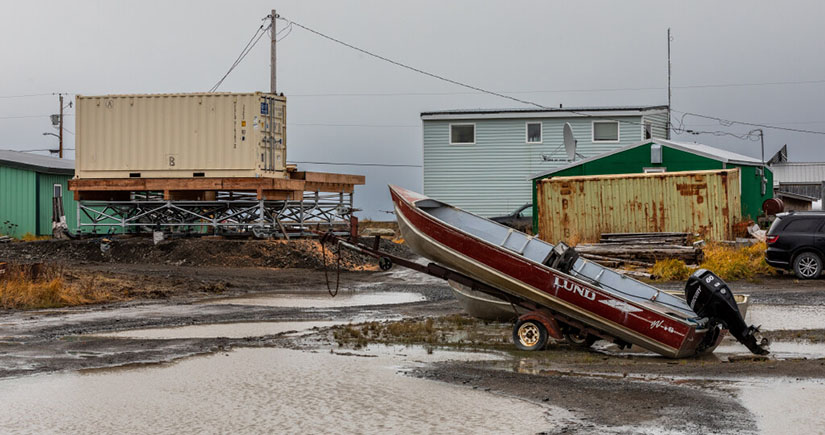Behavioral Science for Climate Change Research
NREL's climate change research combines a place-based behavioral science approach with quantitative and qualitative tools to assess risks specific to individual communities and determine solutions that will minimize harm.

Analyzing Socioeconomic Factors That Affect Responses to Climate Change
Access to quality housing, reliable transportation, and emergency services affect communities' ability to prepare for and withstand floods, wildfires, and other natural disasters. NREL's behavioral science research team uses place-based approaches to analyze how these differences, which largely spring from economic and social inequality, can determine a population's level of risk and the effectiveness of official government precautions and reactions.
Case Study: Links Between Income and Natural Disaster Recovery
NREL behavioral science experts conducted field work examining the connections between income levels, vulnerability to climate hazards, and the ability to recover from natural disasters. This study of households across socioeconomic classes in Latin American and Asian cities examined access to energy, water, and emergency services, as well as preparation for and response to heatwaves, floods, and other extreme conditions.
Publications
Exploring Citizen Infrastructure and Environmental Priorities in Mumbai, India, Environmental Science & Policy (2016)
From Risk to WEF Security in the City: The Influence of Interdependent Infrastructural Systems, Environmental Science & Policy (2018)
Interdependencies and Risk to People and Critical Food, Energy, and Water Systems: 2013 Flood, Boulder, Colorado, USA, Earth’s Future (2018)
The (In)visible Health Risks of Climate Change, Social Science & Medicine (2019)
Understanding Low Carbon Transitions in the Era of Global Urbanization, Wires Climate Change (2019)
Contact
Share
Last Updated Dec. 9, 2024
